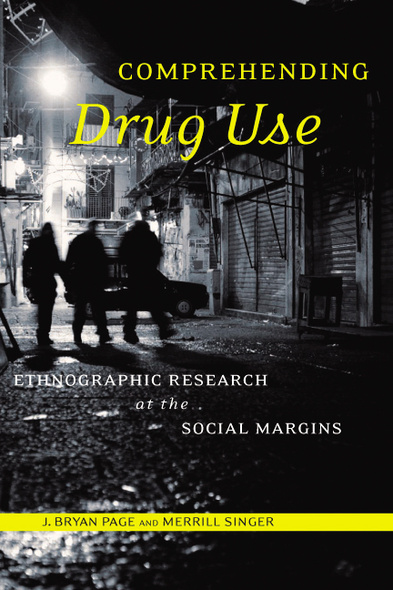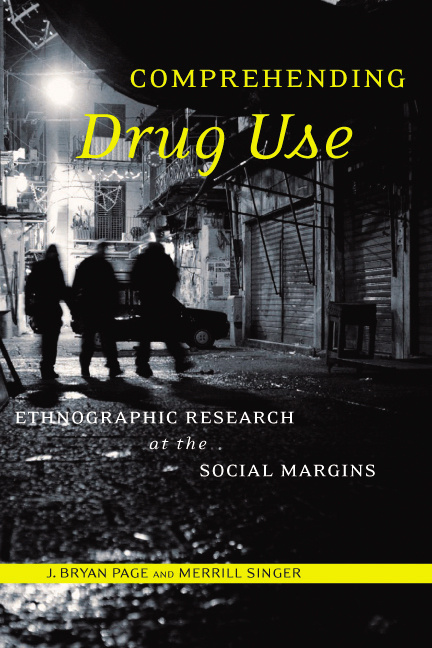Comprehending Drug Use
Ethnographic Research at the Social Margins
By J. Bryan Page and Merrill Singer
SERIES:
Studies in Medical Anthropology
Rutgers University Press
Comprehending Drug Use, the first full-length critical overview of the use of ethnographic methods in drug research, synthesizes more than one hundred years of study on the human encounter with psychotropic drugs. J. Bryan Page and Merrill Singer create a comprehensive examination of the whole field of drug ethnography-methodology that involves access to the hidden world of drug users, the social spaces they frequent, and the larger structural forces that help construct their worlds. They explore the important intersections of drug ethnography with globalization, criminalization, public health (including the HIV/AIDS epidemic, hepatitis, and other diseases), and gender, and also provide a practical guide of the methods and career paths of ethnographers.
For anyone wanting to obtain a better sense of the range and diversity of historical and contemporary ethnographic research on drugs, this fine book will clearly be the one to consult.
Productive and imaginative anthropologists Page and Singer provide a succinct history of the century-long, rapidly expanding field of drug studies. Clear, well written, and neatly organized, this book fills a gap in the literatures of both drug studies and anthropology. Highly recommended.
For anyone wanting to obtain a better sense of the range and diversity of historical and contemporary ethnographic research on drugs, this fine book will clearly be the one to consult.
Productive and imaginative anthropologists Page and Singer provide a succinct history of the century-long, rapidly expanding field of drug studies. Clear, well written, and neatly organized, this book fills a gap in the literatures of both drug studies and anthropology. Highly recommended.
J. BRYAN PAGE is a professor and chair of anthropology at the University of Miami. He is a leading ethnographer studying the use of particular drugs in different cultures. The author of dozens of articles in major journals, he has also contributed many book chapters in the fields of medicine and anthropology, especially drug research.
MERRILL SINGER is a professor in the department of anthropology and a senior research scientist at the Center for Health, Intervention, and Prevention at the University of Connecticut. He is also affiliated with the Center for Interdisciplinary Research on AIDS at Yale University and the Global Center on Health in Central Asia at Columbia University. Having authored or edited more than twenty books and two hundred articles and book chapters, he is also the recipient of several distinguished awards.
Through ethnographic eyes
The emergence of drug ethnography
Systematic modernist ethnography and ethnopharmacology
Drug ethnography since the emergence of AIDS
Drugs and globalization: from the ground up and the sky down
The conduct of drug ethnography: risks, rewards, and ethical quandaries in drug research careers
Career paths in drug-related ethnography: from falling to calling
Gender and drug use: drug ethnography by women about women
The future of drug ethnography as reflected in recent developments
The emergence of drug ethnography
Systematic modernist ethnography and ethnopharmacology
Drug ethnography since the emergence of AIDS
Drugs and globalization: from the ground up and the sky down
The conduct of drug ethnography: risks, rewards, and ethical quandaries in drug research careers
Career paths in drug-related ethnography: from falling to calling
Gender and drug use: drug ethnography by women about women
The future of drug ethnography as reflected in recent developments





